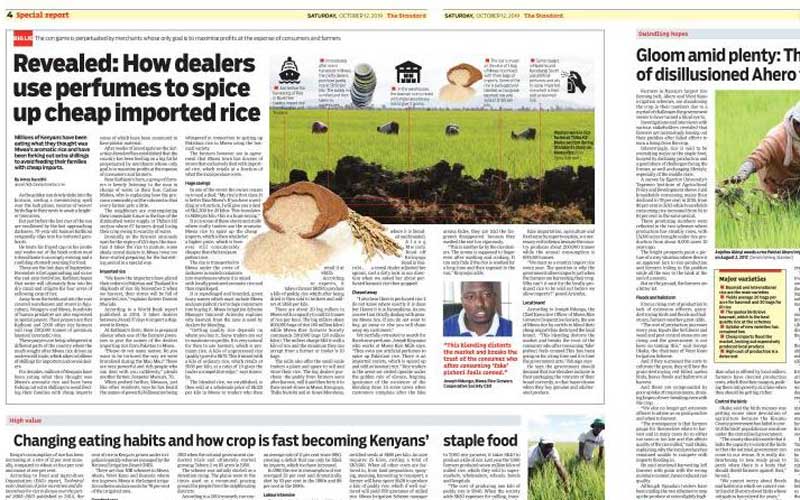×
The Standard e-Paper
Kenya’s Boldest Voice

The incapacity of Kenyan leaders and policies to protect the interests of citizens can be unnerving. Reports published by our sister publication, Saturday Standard, indicating how crafty traders are selling blended rice, sometimes spiced with artificial perfumes, is an indicator of how our control systems have collapsed.